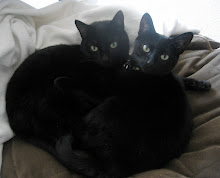Having a life-threatening food allergy is scary. Having a life-threatening food allergy at 35,000 feet can be downright terrifying. I’ve done quite a bit of flying throughout my life so I thought I’d pass along some of the things I’ve learned along the way. For simplicity and because it’s the food I’m most allergic to, I will use peanuts as the example throughout this post, but the general tips and tricks apply to a variety of food allergies.
Whether your flight is domestic or international, if possible, plan ahead. Begin by looking at the airline’s website. Most have policies in place for dealing with allergies and state whether or not they serve the most common allergenic foods on board. Print out the policy and bring it with you to the airport.
Reservations:
Make your reservation over the phone instead of online. Tell the agent that you have a life-threatening food allergy and ask what the company policy is. Take clear notes and ask for the person’s name. Also try to reserve flights early in the morning as the plane is usually cleaner at that time. Some airlines will not serve peanuts if you request it, some will provide a buffer zone (usually three rows ahead and three rows behind your seat), and some will say you are out of luck as they make no accommodations for their allergic customers. Ask if they can make a note on your reservation that you would like to pre-board and request a window seat (the importance of this later).
Check In:
When you arrive to check in, let the agent know that you have an allergy. Most of the time they will tell you that you need to inform the gate as there is nothing they can do at check in. The reason I still mention the allergy at this time is because more times than I care to remember, I have been asked at the gate or on the plane if I told the agent when I checked in. This is also the time to confirm that you have a window seat.
Security:
Keep your EpiPens in an easily accessible place in case the agent wants to examine them. Also have a letter from your doctor explaining that it’s necessary for you to travel with EpiPens and any other medication you might be carrying. Make sure the letter includes contact information for your doctor’s office. Of all the air travel I’ve done, only once have I been asked to furnish a letter stating that I could carry medication, but it’s best to have one, just in case.
At the Gate:
Upon arriving at the gate, speak with the gate agents. Let them know that you have a life-threatening allergy and would like to pre-board. If you have any trouble, produce the name of the reservation clerk you spoke with and explain any special accommodations that were promised to you.
Boarding:
Pre-board! Pre-board! Pre-board! When you board the plane, speak with the first flight attendant you see. Tell the person that you have a life-threatening allergy and confirm that peanuts won’t be served, or if nothing else, they will provide the three row buffer (in front and behind your seat). If you are traveling alone, tell the person where your EpiPens are located and give a brief explanation of how to use them. Boarding is a very busy time for the flight crew, so be as polite and brief as possible.
Your Seat:
Bring alcohol wipes with you. I keep them right next to my EpiPens and Benadryl in a little case. Use alcohol wipes to clean the seat, tray table, armrest, seat belt latch, headrest, and everything else you might touch. Most people with peanut allergies can experience a reaction from just the residue, so as well as you can, clean! Also, the reason I always ask for a window seat is that I’m not going to be bumped as other passengers are boarding and nobody is going to be climbing over my seat to get to their seat, thus contaminating the area I’ve already wiped down.
Enjoying the Flight:
Bring your own food or eat before you fly. There is no guarantee that the food on the plane wasn’t contaminated or cross contaminated when it was being made. Some airlines will make an announcement in the gate area and some will do it once all the passengers are on board, asking that passengers not eat foods containing peanuts on the flight. Don’t be embarrassed, they are doing this to protect you. Sit back and try to enjoy your flight!
After the Flight:
If your flight attendant did a particularly good job and took your allergy seriously, thank them, get their name, and let them know that you will be contacting the airline to share your positive experience. If you don’t have a good experience, you should also contact the airline. They need to know how they can improve customer service. This rule also applies to the gate and reservation agents.
Last but not Least:
There is no consistent rule for which airlines are better than others. No airline can promise a "peanut free flight" as they have no control over what passengers bring on board. In addition, people in many parts of the world don’t have experience with food allergies, so try to be patient. That said, I've had over the top, wonderful flights particularly on SAS, British Airways, Delta (international), and Sun Country (domestic). I had one particularly bad experience on U.S. Airways (international) and fairly mediocre service with U.S. Airways (domestic). Above all, just remember to be polite, but stern if you need to be, and write a letter if you have a particularly good, or bad, experience.
Enjoy your flight!
Monday, March 23, 2009
Subscribe to:
Post Comments (Atom)











No comments:
Post a Comment